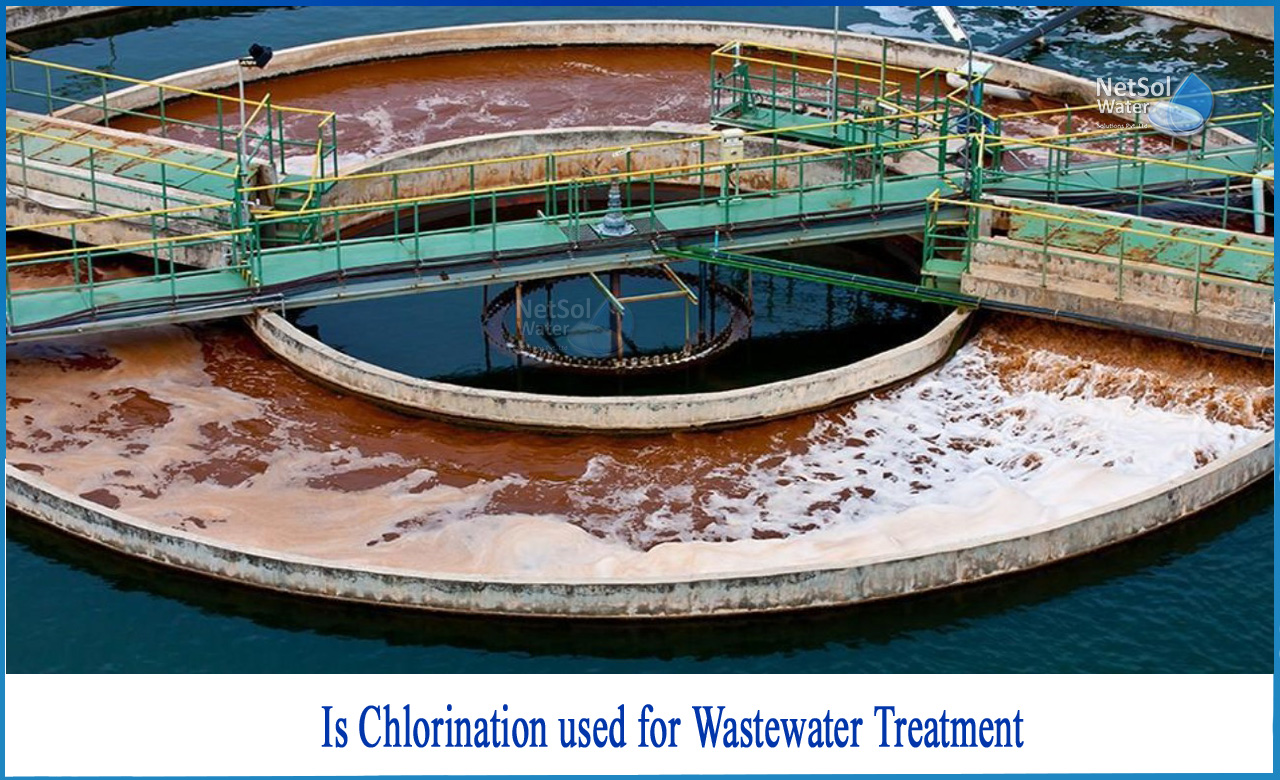Is Chlorination used for Wastewater treatment?
Most pathogenic organisms that are detrimental to human and animal life will be killed or inactivated by chlorine and its many forms.
The most popular disinfection procedure for wastewater treatment is chlorination.
Despite the widespread usage of chlorine to generate safe drinking water, chlorination is a complex process, especially given that chlorine is harmful in and of itself. More lately, we've been paying close attention to how we utilize chlorine to avoid the production of disinfection by-products.
Chemicals used in chlorination are relatively
1: Obtainable with ease;
2: Cost-effective;
3: Effective;
4: Simple to use
Chlorine is commonly used in wastewater treatment in the following forms
Chlorine may be found in two forms: free chlorine and chloramines.
Both groups may oxidize chemicals and fulfil treatment goals; but, to meet the same chlorine requirement, more chloramines are required. The ion form and protonated form of chlorine in water, OCl- and HOCl, are both taken into account when measuring free chlorine. HOCl (hypochlorous acid) is the more powerful oxidant of the two and is dominant below pH 7.5.
Mono-, di-, and trichlorine chloramines are generated when chlorine reacts with ammonia at different pH levels. Monochloramines predominate above pH 6. The term "combined chlorine" refers to the measurement of all three kinds of chloramines. The term "total chlorine" refers to a measurement that includes both free and mixed chlorine. Chloramines, unlike chlorine, do not decompose over time.
The quantity of chlorine dosed is the total of the chlorine in the residual, the chlorine used in treating the water, and the chlorine that has interacted with ammonia to generate chloramines.
Disinfection of Wastewater
The elimination of harmful bacteria is the major goal of wastewater disinfection.
Second, wastewater discharge should not contain substances that are harmful to the environment's health. While a chlorine residual is good in drinking water treatment, it is undesirable in wastewater treatment since chlorine released into the natural environment might harm aquatic organisms.
Chlorine can fulfil disinfection goals by inactivating bacteria and viruses. Chlorine has the ability to oxidize and destroy soluble pollutants like agricultural or medicinal chemicals. Chlorination, on the other hand, can result in the generation of disinfection by-products (DBPs) when it reacts with organic substances. The high concentration of organic components in wastewater leads to a higher potential for DBP formation than in drinking water disinfection.
By-Products of Disinfection
Organic molecules that aren't eliminated before disinfection form precursors for DBPs, which can be toxic to humans.
Trihalomethanes (THMs) and haloacetic acids (HAAs), two classes of halogenated chemicals with negative human health consequences, are formed when free chlorine interacts. Due to their reduced oxidizing capacity, chloramines produce less DBPs than free chlorine, but they still produce N-nitrosodimethylamine (NDMA), a very strong carcinogen.
To avoid the creation of DBP, eliminate known precursors, avoid excessive chlorination, or use a different disinfection procedure. Chlorine and chloramine are the most cost-effective disinfection techniques in general, however if DBP removal is necessary, alternative disinfection methods become cost-effective.
Because UV disinfection does not introduce a halogen into the system, halogenated DBPs such as THMs and HAAs are not formed. Other by-products, such as nitrate photodegradation to nitrite, may develop. UV disinfection products, on the other hand, are not generated in amounts that are harmful to humans. UV has the ability to breakdown DBPs and is also capable of decomposing chloramines.
What can we offer?
You can have an expert solution upon contacting Netsol Water, a leading manufacturer of Industrial and Commercial Water treatment plants and Wastewater treatment plants, among other services. Our treatment systems are very effective at removing all types of chemical, physical, and biological pollutants. We also provide various disinfection technologies as per customer’s needs.
Netsol Water is Greater Noida-based leading water & wastewater treatment plant manufacturer. We are industry's most demanding company based on client review and work quality. We are known as best commercial RO plant manufacturers, industrial RO plant manufacturer, sewage treatment plant manufacturer, Water Softener Plant Manufacturers and effluent treatment plant manufacturers. Apart from this 24x7 customer support is our USP. Call on +91-9650608473, or write us at enquiry@netsolwater.com for any support, inquiry or product-purchase related query.



